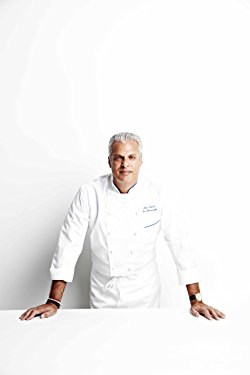
Human experimental ‘guinea pig’ and author Tim Ferriss is on a lifelong journey to ‘hack’, though he does not like that word, human performance. In the process, he has interviewed many of the top performers in business, sport, entertainment, etc to ‘deconstruct world class performers, to find out what makes them tick, what makes them good, and to unearth the specific tactics, habits, etc that you can use’. He’s published many of his findings in the book Tools of Titans.
One habit or routine he found was that a large percentage of these Titans had some kind of meditative practice. They are, bar a few, not practicing any form of Buddism, Hinduism or any other spiritual practice.
As I have blogged on previously, there is a formula for meditation: 1) Focus on a single point; 2) Let all your thought go and be in the present moment; 3) when you notice your thoughts have drifted from the present, gently… 4) bring your attention back to a single point of focus.
It is this bringing your thoughts back that give your the key benefits. It’s like a brain workout. That is why this practice is often referred to as mindfulness.
Why is it that overachievers use mediation or mindfulness?

This is how ‘New York‘s best chef’ and author Éric Ripert described it to Tim:
Meditation ultimately helps you to train your mind how to concentrate in a better way. Helps you to control your mind. If not, the mind is something that is very free and lacks discipline. It’s the only way for you to be in control of yourself. It’s the best way for yourself to concentrate and, if you are studying some philosophical subjects, to go to the roots of the subjects. That’s what meditation does.
It also, I believe, helps you to be calmer… to be much more serene. It doesn’t happen overnight. Meditation, often in the beginning, it’s very frustrating. It’s not pleasureful. It’s a challenge. But then after a lot of practice, it was becomes a necessity. Becomes a refuge for yourself. It’s a lot of pleasure coming out of it.

So, meditation is not easy in the beginning. It takes practice and dedication. But just like starting a regular exercise programme, once it becomes a routine, it becomes easier and the benefits are greater.
Tim often recounts a story about hearing someone on stage being asked how long he meditated daily to which he answered thirty minutes. The Type A personality questioner in the audience stated that they could never sit still for thirty minutes to which the presenter responded, ‘if you can’t meditate for thirty minutes then you need to do it for three hours’.
Generally, the harder it is for you, the more you need it.
Do you have a mindfulness practice?
If you don’t, maybe you should.
Enjoy!
Scott
PS. If you enjoyed this post, please Share it with the social media widgets on the side
PPS. Tim Ferriss released his book “Tribe of Mentors: Short Life Advice from the Best in the World” on November 21, 2017, you can check it out on Amazon by clicking here!
Related articles across the web



